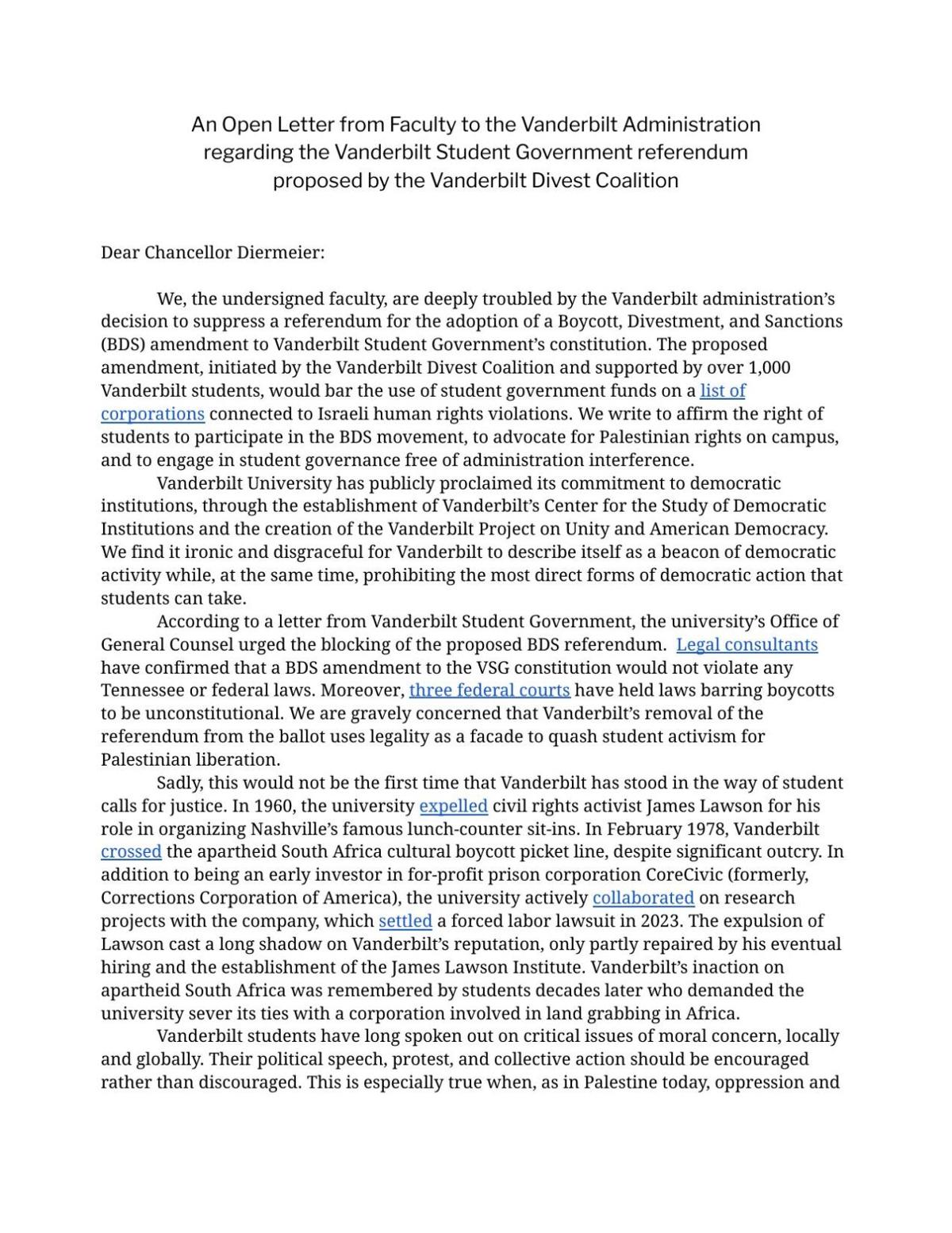In a letter delivered to Chancellor Daniel Diermeier on Friday, Vanderbilt University faculty criticize school leaders for suppressing pro-Palestine student activism. They call on the university to reverse its recent decision to block a vote on a Boycott, Divestment and Sanctions resolution in the Vanderbilt Student Government.
The statement includes signatures from 25 faculty members, including three full professors, 12 associate professors, six assistant professors, three post-doctoral fellows, one lecturer and one professor emerita. The letter also cites support from eight faculty members who chose to remain anonymous.
Evidence shows administrators are putting Vanderbilt Divest Coalition's efforts through the bureaucratic spin cycle
“We, the undersigned faculty, are deeply troubled by the Vanderbilt administration’s decision to suppress a referendum for the adoption of a Boycott, Divestment, and Sanctions (BDS) amendment to Vanderbilt Student Government’s constitution,” the letter reads in part. “The recent decision to remove the BDS referendum from the upcoming VSG ballot is a step in the wrong direction. We condemn this suppression of student democracy and demand that the ballot referendum be reinstated."
In February, a coalition of student groups, led by campus chapters of Jewish Voice for Peace and Students for Justice in Palestine, gathered enough signatures to bring a BDS resolution to a vote under university rules. They have since endured several administrative obstacles in their effort to bring pro-Palestine perspectives to campus.
Last week, Vanderbilt told students that a BDS vote could not move forward in the student government because support for the tactic — a Palestinian-led global movement to financially isolate Israel — could jeopardize university contracts under state and federal law. Lawyers consulted by student organizers dispute the university’s legal opinion. In the letter, faculty accuses the university of using "legality as a facade to quash student activism" and derides its stances on free speech as hypocritical.
The faculty letter draws parallels between Vanderbilt suppressing pro-Palestinian student activism, expelling civil rights leader James Lawson in 1960, supporting apartheid South Africa in 1978, and partnering with private prison giant CoreCivic — all instances in which the university “stood in the way of student calls for justice.”
Read the letter in full below.







